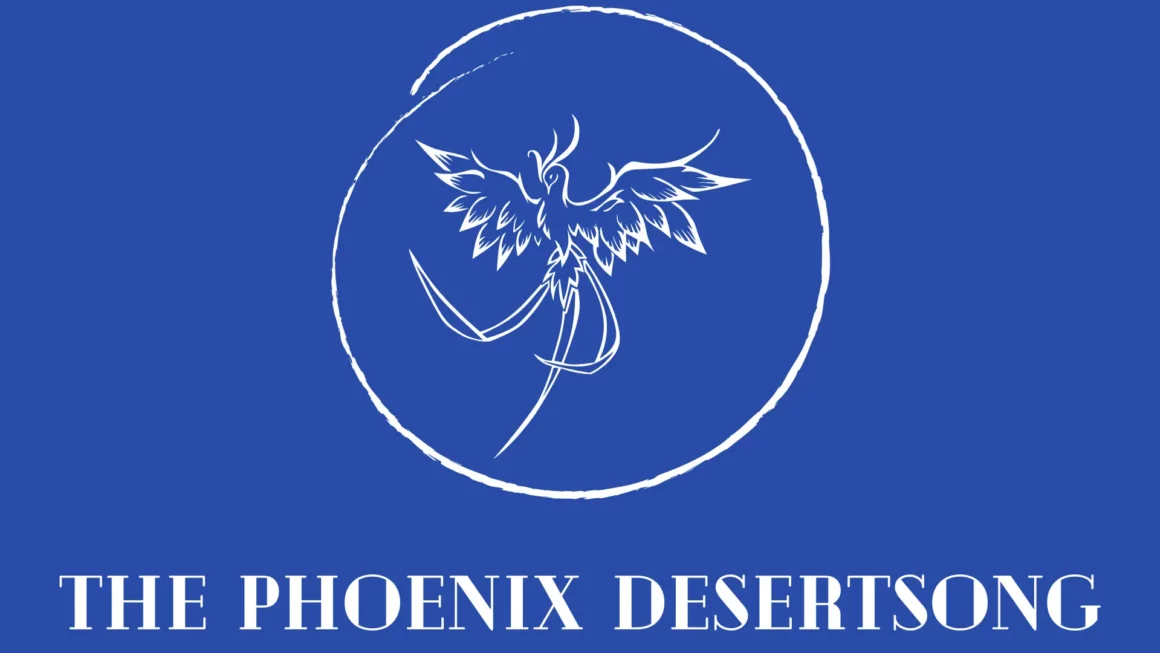In the not-so-distant past, I was a digital marketer. That’s a title that might sound glamorous if you’re into buzzwords and the thrill of chasing after the ever-elusive SEO trends. Indeed, for over a decade, I fancied myself as a blogger extraordinaire, tirelessly diving headfirst into the murky waters of long-tail keywords and emerging search trends. My days were a blur of scattershot and sniper approaches, casting wide nets while zeroing in on topics I hoped to dominate on the first page of Google results. Most days, though, my results were about as underwhelming as a soggy slice of toast.
Yet, I soldiered on, stubbornly waiting for that one magic click to catapult my latest project to the zenith of Google’s sacred rankings. The weekly grind turned into months of frustration. Before I knew it, I’d suffered years of content underperformance. During this period of digital drudgery, a persistent new idea began to creep into my thoughts.
What if, instead of chasing metrics and algorithms, I could use my words to genuinely raise the floor of humanity? What if my writing could be intentional, methodical, and practical, creating ripples that would extend far beyond a token donation or a one-off volunteer event? These musings led me to realize that true impact comes from heartfelt contributions and peaceful dialogue.
Unfortunately, this philosophical shift would leave me soon far removed from the sterile world of SEO and digital marketing metrics. Yet, I still decided to follow my heart nonetheless, eventually decided to use my words to forge a new path. Not only was I seeking to raise my own floor as a human being, but also to lift those who dare to follow paths similar to my own.
The Digital Marketing Rat Race
For over a decade, I immersed myself in digital marketing metrics. In that realm, the worth of words is measured not by their meaning but by their ability to climb the ranks of Google’s sacred page ranking algorithm. My daily routine was a grueling marathon of keyword research, SEO trend analysis, and content optimization. I felt like a modern-day prospector, panning for digital gold in a vast, unpredictable content ecosystem.
Armed with an arsenal of long-tail keywords and an intimate knowledge of the latest SEO trends, I employed a dual strategy that could best be described as schizophrenic. On some days, I cast a wide net, writing about every conceivable topic under the sun in the hopes of snagging some low-hanging fruit. On others, I became a digital sniper, honing in on niche subjects with laser-like precision, aiming to dominate the first page of search results. My approach varied depending on which strategy seemed likeliest to catch which way the wind was blowing.
Dark humor soon became my coping mechanism as I navigated a few surprising successes that would be left overshadowed by puzzling failures. I eventually found myself laughing at the absurdity of waiting for a single click to transform my fortunes, much as a gambler hopes the next spin of the roulette wheel will change their luck.
My daily grind soon turned into a monotonous loop of effort and disappointment, punctuated by moments of fleeting hope. Every minor success—a slight uptick in page views or a modest increase in engagement—was celebrated with the fervor of a shipwrecked sailor spotting land. It wasn’t a healthy way to live and every small victory felt like winning a war against the very force of gravity itself.
Despite the underwhelming results, I kept going, driven by the faint glimmer of possibility that the next piece of content might just be the one to put me on the map. The digital marketing rat race had me firmly in its grip, and I was too stubborn to admit that the race might be not be winnable. My life as a writer became an endless cycle of chasing after round numbers, with little regard for the actual impact of my words.
Even in the midst of these trials, however, I was already nudging myself towards change. Even while deep in keyword research, I still often considered a different path. After all, what I most wanted even then was to find a space where the value of my words could be measured by their ability to make a genuine difference. The nagging truth that I was trapped in a cycle of underperformance and superficial success became harder to ignore. Thus, as my frustration with digital marketing grew, so did my desire to break free from its confines.
The Spin Cycle of Content Marketing
As I continued to battle the ever-changing digital landscape, I began to feel like content marketing was becoming nothing more than an enormous washing machine stuck on spin cycle. Intuitively, I knew there was so much more to writing than just feeding the voracious beast of SEO. But no matter what I was putting into it, everything was starting to read like a thinly veiled sales pitch for some product or service from which I derived no real benefit.
Eventually, I became overwhelmed by frustration and fatigue. The endless cycle of optimizing content for algorithms left me drained and disillusioned. Each morning, I faced my screens with a mix of dread and resignation, knowing that today’s efforts might very well lead to nothing more than tomorrow’s obscurity. The sheer absurdity of continuing down this path, hoping for different results, finally dawned on me.
I began to imagine my epitaph reading something like: “Here lies Amelia, vanquished by Google’s algorithm.” The more I thought about this grimly amusing image, the more I realized how absurd it was to let my self-worth be dictated by search engine rankings and page views. These metrics that once seemed so crucial now appeared shallow and meaningless.
When the world shut down in 2020, I began to seriously contemplate the possibility of using my writing to contribute to something larger than myself. Not only was I about to abandon the digital marketing grind, but redefine my purpose as a writer. What if my words could help raise the floor of humanity? What if, instead of chasing clicks, I could focus on crafting content that made a real difference in people’s lives?
It was a revelation that struck with some urgency. The idea of raising the floor of humanity through intentional, methodical, and practical contributions started to take shape. I envisioned my writing as a series of ripples spreading outward, creating positive change. I wasn’t interested in making grand gestures or calling for sweeping reforms. Rather I called for others to make small, meaningful actions that collectively build towards a better world.
I found myself reflecting on the inadequacies of token donations and corporate-sponsored volunteer events. Such efforts, while usually well-meaning, often felt like Band-Aid solutions to deeper issues. It’s easy to be cynical about these initiatives, which frequently seem more about optics than actual impact. Many of them appear to be organized for little more than corporate tax write-offs and positive PR. Meanwhile, I felt myself being pushed me towards something more substantial. I didn’t want to just write well-meaning self-help articles that were more for my own positive reinforcement than to help anyone else.
I felt an urgent need to contribute to a more peaceful dialogue with others. After all, our world has increasingly grown polarized and fragmented, so now the ability to speak openly and constructively is more important than ever. If my words can help build better bridges between people, invite any degree of understanding and cooperation instead of division and strife, I’ll be happy to have written them.
How to Raise Our Floor
Raising the floor of humanity isn’t just some lofty ideal. It’s become my life’s mission, involving calling others to be more intentional, methodical, and practical in our contributions to the world. These contributions shouldn’t only be immediate stopgaps, but foundations for long-lasting solutions. We can’t limit ourselves to making token gestures or one-off acts of charity. Solving the troubles of our world demands sustained effort and addressing root causes rather than merely treating symptoms.
Dark humor often provides me the lens through which I view the inadequacies of many well-meaning efforts. For example, the typical corporate-sponsored volunteer event that feeds people for a single meal but leaves them starving for the rest of the year seems like a cruel joke. The absurdity of such superficial solutions highlights our need for more substantial, systemic change.
My sarcastic wit also has become one of my best tools for critiquing the ridiculously impractical promises made by many nonprofits. These grandiose claims and over-the-top fundraising pitches of non-profit organizations often feel disconnected from reality, promising the moon while delivering a handful of fake moon dust.
Still, our individual contributions, no matter how small, can collectively create significant impact, but only if they are made with the right intention. Making real difference requires far more than just writing checks to charities. We must engage with communities, have meaningful dialogues, and take practical steps to improve lives.
Creating ripples with words is my personal contribution. I now focus on writing content that not only informed and entertained but also inspired and empowered. My goal is to challenge assumptions and encourage readers to think critically about their own contributions to the world. The more I write, the more potential for my words to create lasting ripples. By addressing topics that matter and presenting them in a way that’s both engaging and thought-provoking, I’m acting on my intent to contribute to a more informed and empathetic society.
Creating Ripples with Words
My sudden transition from writing for a paycheck to writing with purpose was both liberating and transformative. I realized that my words could be powerful agents of change. With this new direction, I found myself liberated from the constraints of producing content solely to satisfy fickle and ever-changing algorithms.
Writing is no longer a monotonous task for me, driven by the need to hit specific keywords and optimize for search engines. Instead, it’s become the craft at which I most excel. I think back now to that comically tragic image, myself as a writer reduced to a mere cog in the vast machinery of digital marketing. Now, free from these constraints, I can focus on writing with authenticity and passion.
My natural tendency towards sarcasm and dry wit has also played a role in my newfound freedom. The irony of needing liberation to finally speak my mind wasn’t lost on me. It was absurd that it took a break from metrics to rediscover the true power of my words. What were once ramblings in my various notebooks began to find themselves becoming remixed into more coherent narratives. These works became the basis for my deeply philosophical Chronicles of Absurdia, as well as the more autobiographical Life and Times essays such as these.
Sometimes I’m discussing hot button issues such as social justice or environmental sustainability. Other times I study how various pop culture franchises and unexpected moments contributed or detracted from my personal growth. Either way, I approach each subject with an eye towards creating actionable advice that can lead to positive change.
In this context, I’ve recently found particular inspiration in articles like Laura Conteuse’s “60 Powerful Ways to Contribute to World Peace.” Her suggestions provide a wealth of ideas for practical, everyday actions to help build a more peaceful, just world. While I’m not a fan of simply listing things that sound good, especially when many of them read like common sense, I appreciate the sentiment, and try to carry such sentiments forward whenever I come across them.
Ultimately, my new approach to writing hinges on constantly reminding myself that every piece of content, no matter how small or seemingly insignificant, has the potential to contribute to a larger, collective effort. I must focus on my own authenticity, passion, and purpose, without allowing myself to fall back into the old spin cycle mindset that plagued me for years on end.
Building Better Bridges
My shift in perspective on content creation meant far more than a change in writing style. I needed to redefine my entire approach to life, mindfully recognizing the power of intentional, practical contributions and the impact that small, thoughtful actions could have. With my newfound purpose, I began to see my writing as building bridges, connecting people, ideas, and experiences.
Our modern world has devolved into a place where shouting matches often drown out meaningful conversations, I’ve aimed to use my words to build better, more inclusive bridges. This involves more than just putting words on paper. Content must not only be engaging, but also inspire and unite its readers through actionable ideas.
Indeed, dark humor often provides a necessary counterbalance to the seriousness of my mission. I never cease to be taken aback by the irony of modern communication: we have more ways to connect than ever before, yet we’re ever more divided. Too often, many of us are caught up in social media “conversations” which devolve into petty arguments. Meanwhile, the mass media seems to perpetuate an endless cycle of outrage and distraction. Both of these phenomena are symptoms of the human need for more substantive dialogue.
I find that creating content which properly covers important themes requires a delicate balance of seriousness and humor. My aim is to address serious issues without becoming overly preachy or dour, while my measured sarcastic wit helps to underscore the absurdities and challenges we face. Together, I’ve used these elements to evolve my writing style to become more engaging and thought-provoking.
It’s almost comical how difficult it is nowadays to have a civil discussion without being torn asunder by trolls and keyboard warriors. The notion that speaking one’s mind could be a revolutionary act in such a polarized environment is both ridiculous and quite true. But, the only way to combat this negativity is to actively write with empathy and understanding, even when addressing contentious topics. In doing so, we must recognize and respecting different perspectives while advocating for common ground and mutual respect.
~ Amelia Desertsong
Sources that inspired this post:
- How Individual Contribution is Vital To Positively Impact the World. | Global Bridge Foundation. https://www.theglobalbridge.org/how-individual-contribution-is-vital-to-positively-impact-the-world/ .
- 5 ways to be a better humanitarian | World Economic Forum. https://www.weforum.org/agenda/2019/08/5-ways-to-be-a-better-humanitarian/ .
- 60 Powerful Ways to Contribute to World Peace. | Laura Conteuse. https://lauraconteuse.com/ways-to-contribute-to-world-peace/ .



